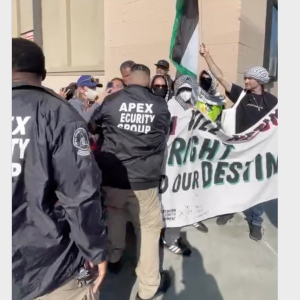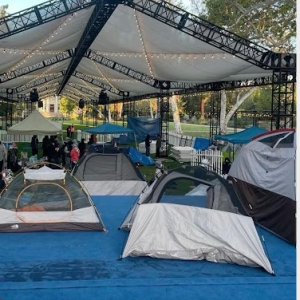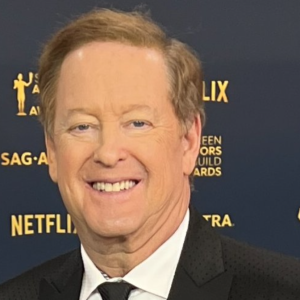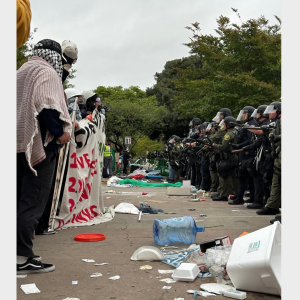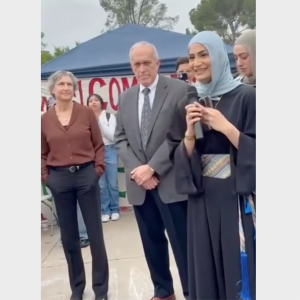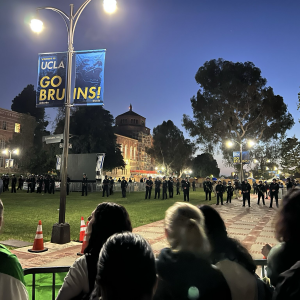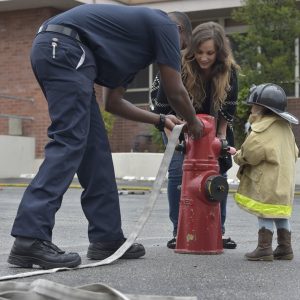 View Winners →
View Winners → An Open Letter Concerning CMF
I am a former employee of Community Media of the Foothills, having worked there as a freelance writer, editor, and director from September 2012 until February 2015. I began as an unpaid intern and worked my way up to become a filmmaker with a strong body of work which attracted clients and raised the reputation of CMF as a dynamic producer of original, compelling film and video projects. My work was routinely showcased at various publicity events as some of the best that CMF can produce.
I am a former employee of Community Media of the Foothills, having worked there as a freelance writer, editor, and director from September 2012 until February 2015. I began as an unpaid intern and worked my way up to become a filmmaker with a strong body of work which attracted clients and raised the reputation of CMF as a dynamic producer of original, compelling film and video projects. My work was routinely showcased at various publicity events as some of the best that CMF can produce.
I am issuing this letter in support of former CMF employee, Angela Jackson. I hope other former employees will come forward and give evidence of the systemic mismanagement of Executive Director Lance Mungia. Until then, I offer my voice in place of those who cannot or will not speak.
I came to CMF to learn film production and gain professional experience to compliment my higher education in film studies and screenwriting. I often worked between 40 to 60 hours a week, filling multiple key roles on several projects. I was paid only a flat rate per project which often averaged $10 or less per hour. I was repeatedly told by Mungia that this was all CMF could afford to pay for my professional services. Unable to hold a second job due to the workload, I experienced financial hardship. I went hungry. I was forced to take out a personal loan to pay my rent. I was subjected to repeated unfounded criticism of my abilities by Mungia, who used anger and derision to pressure me into working for less than minimum wage or for free. At the same time, CMF financially profited from my work, gained new clients, and benefited from the publicity and notoriety garnered by showcasing my projects.
I was not the only employee to suffer in this manner. My coworkers were similarly overworked and underpaid, bullied into under-reporting their hours, and pressured into working for free on projects which were then used to raise sponsorship money from local businesses or sold in DVD form to the general public.
In late 2014, when I took a stand against working for less than minimum wage, I was blacklisted by Mungia from CMF. No further work was offered to me. In spite of this, the clients I worked with at CMF maintained contact with me and expressed a preference for working with me directly rather than dealing with the unprofessional atmosphere of CMF under Mungia’s leadership.
I believe very strongly in the non-profit mission of public access television to give a voice to citizens and communities who otherwise would be unrepresented in a profit-driven media culture. But during my time at CMF, I saw that mission deliberately undermined by Lance Mungia, who used the staff and facilities of CMF to pursue his personal ambitions of becoming a Hollywood film director.
In the two years that I worked at CMF, I witnessed staff, equipment, and resources systematically funneled away from community projects in order to produce the film projects of Mungia.
He confessed to me his intent of reviving his former Hollywood career and bragged about having the perfect set up at CMF where he earned a sizable salary, giving him the security and flexibility to work on his film projects, and having unlimited access to professional equipment and staff to serve as filming production crew. In addition, he spoke of the benefits of operating under the umbrella of CMF to win the trust of prospective film clients and of using CMF to distribute and gain notoriety for his personal film projects.
Staff members were routinely overworked, made to serve the beck and call of Mungia, and were forced to neglect projects which served the community and clients of CMF. Mungia showed little or no interest in the work of CMF staff, who helmed community and client-related projects, except when it showcased abilities he found useful to co-opt for his personal film projects.
I was routinely commissioned to write, direct, and edit various projects for CMF clients and on several occasions struggled to meet deadlines because Mungia could not find the time to allow me access to the studio. This was in spite of the fact he negotiated these same deadlines, knowing it would necessitate the use of studio facilities during times when the studio was technically closed.
My ability to meet my professional obligations with CMF clients was so compromised by Mungia’s disregard for projects not his own and monopolization of CMF equipment that I felt compelled to invest over $2,000 of my own money to purchase post-production equipment in order to work from home and meet the needs of clients.
In contrast, while working on Mungia’s personal film project about The Delgado Brothers, myself and two other editors were given unlimited access to the studio. At Mungia’s instigation, we worked in excess of 15 hours a day, without paid overtime or mandatory breaks, using CMF post-production equipment both day and night for several weeks straight (without days off). All this was so that he could have a completed film to submit to upcoming film festivals in the hopes of reviving his film career.
Mungia was so driven by personal ambition that he later issued a policy forbidding all staff and community members accessing CMF equipment under any circumstances without his express personal consent (in direct violation of CMF by-laws). He issued this policy in retaliation against a former CMF staff member who had checked out film equipment to complete a documentary highlighting a key figure in the Monrovia community (a film project which Mungia informally “promised” to the community member but never paid his staff for completing). The use of film equipment in this case had directly interfered with Mungia’s plans to work on his personal film project.
The consequences of Mungia’s monopoly of staff time and equipment were manifold. Community members and interns seeking support and instruction were neglected and unmonitored. There were excessive delays in completing original content to broadcast on CMF channels. There were excessive wait times in gaining access to edit bays. Often editors, interns, and community members were relocated to workstation after workstation, several times in a day, to give preference to Mungia, who considered that his personal film projects took precedence over all others.
In addition, the data storage facilities were overloaded with Mungia’s personal projects, resulting in multiple crashes, loss of data, and a lack of storage space for new content. To preserve his monopoly of CMF data storage, Mungia issued orders that community members and clients were no longer allowed to store projects on the studio servers.
During the two years I worked at CMF, Mungia’s presence at the studio (when not directly related to his personal film projects) amounted to a couple days a week, sometimes only a few hours a day, or token appearances at mandatory events like staff meetings. He frequently relegated the performance of important tasks and daily operations to hourly staff, unpaid interns, community volunteers, and freelance contractors.
The following are several key examples of Mungia’s pattern of neglect of his professional duties in favor his personal ambitions:
For the Action on Film Festival (2013), the task of gathering and compiling material for a compilation video showcasing the work of CMF staff and volunteers was left to be arranged by Mungia’s secretary. Mungia spent entire working days leading up to the festival obsessed with designing the poster for his own film about The Delgado Brothers.
The organizer of the festival arranged for CMF staff to have a reserved table at the awards dinner ceremony. It was an important public relations event for CMF. However, Mungia was so consumed by his personal film ambitions that he spent the days before the awards ceremony attempting to convince The Delgado Brothers to take out a loan of $50,000 to produce a new extended version of their documentary.
He neglected to inform CMF staff about the awards dinner. As a result, the table reserved for CMF was empty during the entire ceremony. No one was there to represent CMF or to collect the several awards that staff members had earned for their work.
The festival organizer, Del Weston, confided to me that he felt personally and professionally humiliated by Mungia, regarding this event.
For the Action on Film Festival (2014), the compilation video of work produced by CMF staff was relegated to an untrained and unpaid intern. Mungia showed no interest in screening the video before its premiere. At the last minute, a community member asked to include his own short film as part of the CMF reel. It was included, sight unseen.
The film included heavy adult-themed content, sexual language, and scenes of a sexual nature including a cartoon character performing a simulated sex act. It played without any declamatory warnings to an audience that included minor children, members of the CMF board, community members, and CMF clients.
Mungia blamed others for the film’s inclusion and accepted no personal responsibility for the event.
A client named Dawn Clark commissioned the CMF studio and qualified staff members to assist in the production of a series of videos for her business. The video sessions involved the use of both the studio and post-production services, including two members of CMF staff.
Mungia was adamant that Clark should be billed extensively for each individual service and piece of equipment used, as well as for any editing changes no matter how insignificant. He repeatedly expressed frustration that the editor assigned to Clark’s project was unavailable to work on his personal film projects for the duration.
In a private conversation, this editor (who has previously worked on professional film and commercial projects) told me of her frustration at Mungia’s repeated demands that she bill the client for things that are not normally charged for in post-production work. She feared Mungia was trying to drive away the client by overcharging her, in spite of the fact that CMF would have profited from a continued partnership.
A staff member involved in filming the videos discovered a copy of the contract and showed me that Clark had been billed $50 an hour for use of his professional services. However, the employee had only been paid $10 an hour (his usual rate with CMF). Further, Mungia had not allowed him to bill separately for his time working on Clark’s project. Therefore, he was paid only $10 an hour, regardless of being assigned to the client’s project, in addition to his performing his duties at CMF.
Two close acquaintances of Mungia requested CMF’s services in editing a promotional video for a proposed television series. I was commissioned as video editor and paid a flat fee for the project, regardless of my actual working hours or the multiple roles I performed, including story editor and voice over artist.
The agreed upon project was delivered on time and as agreed. However, creative differences arose between the two acquaintances and they requested extensive revisions. Mungia strongly pressured me to make the additional revisions for free. I suggested he should bill his acquaintances the same as CMF clients were billed, otherwise his idea of running CMF as a production studio hardly made good business sense.
Mungia reacted angrily and spoke to me belligerently. He insulted my professional abilities, said I would never receive my big break in Hollywood without his help, and strongly implied that if I did not work for free on his own projects or those of his friends that I would no longer get work through CMF. When I refused to work for free, Mungia recruited another editor from CMF staff to make additional changes. This staff member was not paid for his time nor was the client billed. When the client requested still more changes, Mungia took over the editing himself, using CMF computer equipment, and never charging for his time or use of the equipment.
As of the summer of 2014, CMF had three different contracts with the cities of Sierra Madre, Temple City, and Baldwin Park to capture and broadcast city council meetings and other relevant community events. Mungia allowed only one CMF employee to oversee all three city operations and claimed there was not enough money hire additional staff or replace the aging video systems that caused multiple technical problems and poor quality of service.
My coworker, Employee B, was given responsibility for meeting needs for all the cities at the same time, often working 60 hours a week. In spite of being a full-time student, he was expected to be on-call to each individual city and travel to each facility to resolve constant technical issues. He devoted his personal time and resources to building a proprietary remote-capture system to replace the aging systems at each city. These efforts were continually delayed by Mungia, who claimed there was not enough money to pay for new equipment. He insisted the cities should pay extra to have the new remote-capture system installed.
Overworked and unable to meet the excessive demands, Employee B approached me to see if I was interested in being trained in the operation of the new system and write a training manual to ensure proper training for future operators. I agreed and volunteered my time in learning the systems and compiling notes for the manual.
Mungia rejected the idea, saying there was not enough money to pay for another employee to handle city contracts. Nor would he compensate me for my efforts in composing a training manual.
Employee B acquired copies of the city contracts for Sierra Madra, Temple City, and Baldwin Park, showing there was substantial money being paid to CMF to ensure each city was provided with its own separate operator in addition to providing money for equipment upgrades and repairs.
Employee B confided to me that Mungia often got angry when he tried to invoice CMF for the accurate number of hours he worked, including his overtime. He suffered financial hardships and his university studies were negatively impacted by his employment at CMF. However, CMF profited in only employing one operator, while receiving money for three and by neglecting to replace faulty equipment.
When Employee B left CMF, no other staff members were adequately trained in the new remote-capture system, nor were they qualified to perform the excessive maintenance needed on the older systems. Without his involvement, quality of service rapidly declined, complaints from cities increased, there was vocal discontent with CMF in the community, and, ultimately, CMF lost revenue when both Temple City and Sierra Madre decided not to renew their contracts.
In the summer of 2014, there was a severe lack of employee morale, complaints about lack of leadership, and tensions over the monopoly of equipment and staff for Mungia’s projects. To address these concerns, CMF employees pushed to have regular staff meetings in order to discuss the future of the studio.
Mungia defended his excessive use of staff and equipment, claiming that CMF had barely enough funds to keep operating, and that his personal film projects would bring in revenue. He was enamored with the idea of running CMF as a film production studio. This was the reasoning he gave for purchasing state-of-the- art equipment in spite of being willing to pay staff for the additional responsibilities of working on his personal projects.
Then-Operations Manager Travis Gray, argued that the most reliable way to increase revenue for CMF was not to chase after film projects, but to increase involvement in the community, create stronger links with surrounding cities, and become a leader in providing media services to them. Gaining several more city contracts, he argued, would create more than enough revenue to increase wages and retain qualified staff.
Inspired by Gray’s ideas, I researched and wrote up a public relations and re-branding proposal for CMF that would involve applying for grants to upgrade the studio, foster links with key stakeholders, encourage greater community involvement, and provide structured training and education for staff and community members. I took as my inspiration the transformation of the public access services in Pasadena from a neglected studio on the outskirts of town to a thriving, centrally-located facility, proactively involved with the community, with a strong commitment to education.
I met with Mungia to discuss this plan but he rejected it, specifically because it did not include funding for his goal of turning CMF into a production studio. He offered to pay me $500 if I would research and apply for several grants that would help him in this goal. I rejected his offer.
There was no support from CMF staff in acting on my proposal because each of them was privately making plans to leave CMF in the coming months, deciding that the only way to serve the needs of the community was to form a separate production company, one that did not include Mungia.
In the final months of my time at CMF, Mungia’s attentions were absorbed in filming a documentary about paranormal expert, Russel Targ. (By this time he had lost interest in completing the documentary on The Delgado Brothers, unable to raise additional funds). For the new documentary, Mungia took CMF equipment and key staff members on location for several weeks to complete filming.
I have heard from three separate associates of Mungia that he was personally paid $130,000 by Targ to complete the film. He promised to pay CMF staff who had worked as his film a portion of these funds. However, to this day, none of them have been paid.
Several staff members raised questions privately about the location of these funds, how they were used, if the money was paid into CMF’s accounts, or if it remains in Mungia’s personal possession.
As an additional note, I have recently been made aware that the person currently employed by CMF to oversee the accounts is also Mungia’s girlfriend.
In conclusion: I urge the honorable members of this community to investigate. Investigate. Bring every dark thing into the light. Do not let the personal ambitions of one man derail the noble purpose for which CMF was created.
CMF belongs to every citizen in this community. It exists to provide the means with which to make our voices heard. We have a right to protect our freedom of speech. We have a right to represent our community’s vision. We have a right to preserve free and open government. All of these things are under threat. The future of CMF is at stake. The future of the community’s voice has been co-opted by the greed and personal ambition of one man.
I have nothing to gain by coming forward except to reveal the truth and hopefully end the suffering caused by Mungia’s toxic leadership. I regret that my silence has contributed to the suffering of others after me. Most of all, I regret that the community has suffered from its ignorance of Mungia’s actions. I did not realize how marginalized my voice had become. I was continually dismissed and believed perhaps my voice was not worth hearing. But tyranny feeds upon silence. It grows strong in the darkness of ignorance and apathy. In the end, it is but a shadow upon the wall. It fears the light and the light is in our voices, in our coming together, standing together, and demanding to be heard. We are never too weak to fight, we are never too small to be heard, so long as we stand together.
In the words of Dylan Thomas:
“Do not go gentle into that good night … Rage, rage against the dying of the light.”
Sincerely,
– Hanna Nielson















































